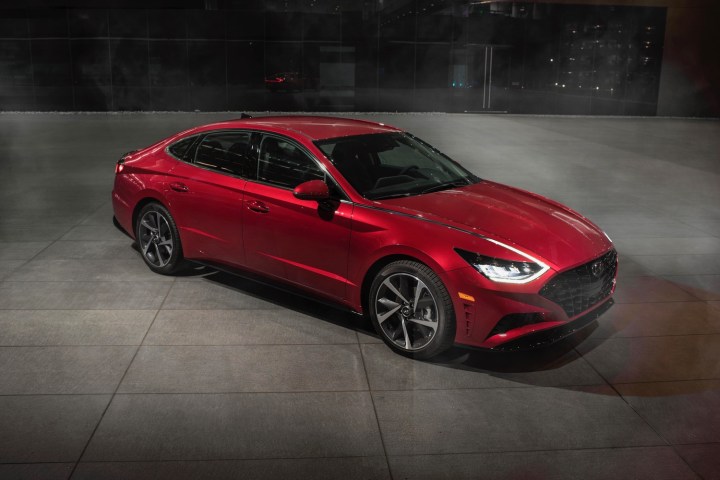
Hyundai wants to improve the quality of the air you breathe when you’re behind the wheel. The South Korean company is developing an intelligent air purification system for its cars that continuously monitors the quality of the air inside the cabin, cleans it when it detects the presence of harmful particulates, and shares the results with the passengers in real time.
Many cars sold new in 2019 come with an air purification system, but it’s usually only active for a period of time determined by each manufacturer, and it shuts off when it’s programmed to regardless of whether the air is clean or not. Hyundai’s system relies on a laser-based sensor neatly integrated into the cabin to tell whether the air quality is excellent, good, fair, or poor. If it’s excellent or good, then all is well and the system goes in standby mode. If it falls to fair, however, the air purification system automatically turns on and eliminates particulates until the level again rises to excellent, and the occupants can breathe easy. This process happens almost instantaneously, according to Hyundai, even if the air quality outside is poor.
Occupants can check the air quality inside the cabin in real time by tapping the touchscreen embedded in the dashboard. The technology can also remove particulates from the cabin before the passengers enter the car, so it sounds like it can be programmed using an app, too. And, because Hyundai’s cars are Alexa-compatible, you could conceivably say “Alexa, set the temperature in my Ioniq to 72 degrees and make the air excellent” before you leave work.
Of course, the best way to make sure the occupants breathe clean air is to keep particulates out in the first place. Hyundai’s particulate-trapping technology works with high-performance cabin air filters that collect up to 99 percent of fine particulates before they enter the cabin. The system also features a charcoal-based deodorization function, meaning you’ll be able to look at grazing cows without smelling what they ate the day before, and it can automatically close the windows if it detects a peak in particulates.
The air purification system is “already under consideration for future Hyundai and Kia vehicles,” according to a statement published online, which is industry jargon for “it’s likely coming in a couple of years.” It’s too early to tell precisely when it will begin to equip production, or which brand — let alone which nameplate — will inaugurate it.



